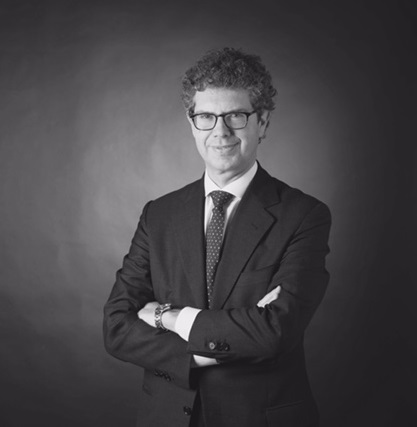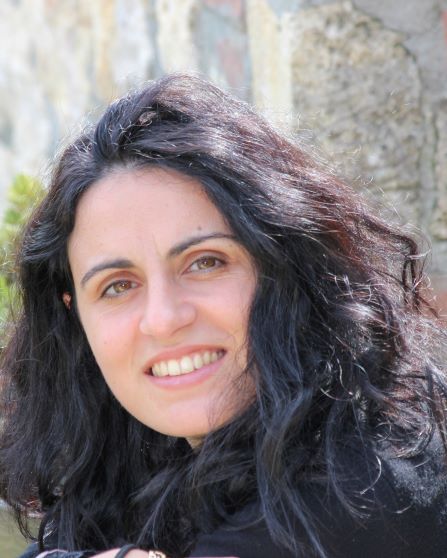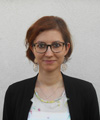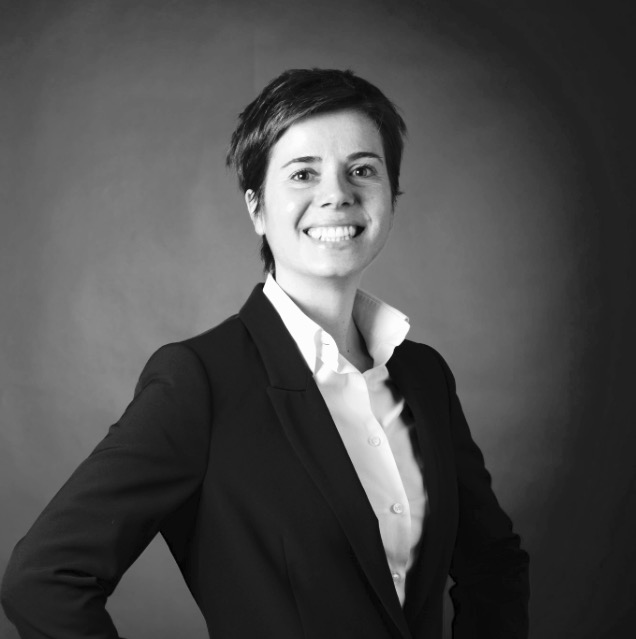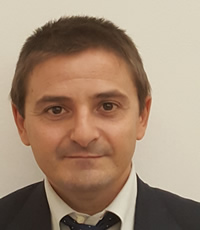Studying at the University of Verona
Here you can find information on the organisational aspects of the Programme, lecture timetables, learning activities and useful contact details for your time at the University, from enrolment to graduation.
Academic calendar
The academic calendar shows the deadlines and scheduled events that are relevant to students, teaching and technical-administrative staff of the University. Public holidays and University closures are also indicated. The academic year normally begins on 1 October each year and ends on 30 September of the following year.
Course calendar
The Academic Calendar sets out the degree programme lecture and exam timetables, as well as the relevant university closure dates..
| Period | From | To |
|---|---|---|
| primo semestre (lauree magistrali) | Oct 4, 2021 | Dec 17, 2021 |
| secondo semestre (lauree magistrali) | Feb 21, 2022 | May 13, 2022 |
| Session | From | To |
|---|---|---|
| sessione invernale | Jan 10, 2022 | Feb 18, 2022 |
| sessione estiva | May 23, 2022 | Jul 8, 2022 |
| sessione autunnale | Aug 22, 2022 | Sep 23, 2022 |
| Session | From | To |
|---|---|---|
| sessione autunnale (validità a.a. 2020/2021) | Dec 6, 2021 | Dec 10, 2021 |
| sessione invernale (validità a.a. 2020/2021) | Apr 6, 2022 | Apr 8, 2022 |
| sessione estiva (validità a.a. 2021/2022) | Sep 5, 2022 | Sep 6, 2022 |
Exam calendar
Exam dates and rounds are managed by the relevant Economics Teaching and Student Services Unit.
To view all the exam sessions available, please use the Exam dashboard on ESSE3.
If you forgot your login details or have problems logging in, please contact the relevant IT HelpDesk, or check the login details recovery web page.
Should you have any doubts or questions, please check the Enrollment FAQs
Academic staff
 massimo.melchiori@univr.it
massimo.melchiori@univr.it

Peluso Eugenio
 eugenio.peluso@univr.it
eugenio.peluso@univr.it
 045 8028104
045 8028104
 giovanni.sandrini@univr.it
giovanni.sandrini@univr.it
Study Plan
The Study Plan includes all modules, teaching and learning activities that each student will need to undertake during their time at the University.
Please select your Study Plan based on your enrollment year.
1° Year
| Modules | Credits | TAF | SSD |
|---|
1 MODULE BETWEEN THE FOLLOWING2° Year activated in the A.Y. 2022/2023
| Modules | Credits | TAF | SSD |
|---|
1 MODULE BETWEEN THE FOLLOWING1 MODULE BETWEEN THE FOLLOWING1 MODULE BETWEEN THE FOLLOWING| Modules | Credits | TAF | SSD |
|---|
1 MODULE BETWEEN THE FOLLOWING| Modules | Credits | TAF | SSD |
|---|
1 MODULE BETWEEN THE FOLLOWING1 MODULE BETWEEN THE FOLLOWING1 MODULE BETWEEN THE FOLLOWING| Modules | Credits | TAF | SSD |
|---|
Legend | Type of training activity (TTA)
TAF (Type of Educational Activity) All courses and activities are classified into different types of educational activities, indicated by a letter.
International management (2022/2023)
Teaching code
4S008090
Teacher
Coordinator
Credits
9
Language
Italian
Scientific Disciplinary Sector (SSD)
SECS-P/08 - MANAGEMENT
Period
Secondo semestre (lauree magistrali) dal Feb 20, 2023 al May 19, 2023.
Learning objectives
The course aims at providing students with a set of theoretical and practical tools to manage a firm’s internationalization process covering all its main forms (internationalization of manufacturing, sourcing and selling activities), with a particular focus on exporting. At the end of the course, students will be able to autonomously analyse business opportunities in foreign markets and to design successful strategies and to make operational decisions to successfully exploit such opportunities. In addition, students will be able to understand the main problems faced by firms in their international business development process and to identify proper solutions to manage them.
Prerequisites and basic notions
None
Program
1) International markets and Italian firms
-the current scenario and the future trends of international markets (globalization, digitalization, mature and emerging markets)
-the position of Italian firms in the international competition
2) The internationalization of the firm
-a short overview of the theories about the internationalization of the firm
-the international strategies and management of international firms
-the specific features of SMEs’ internationalization process
3) Internationalization of manufacturing and sourcing
-internationalization of manufacturing
-global sourcing
-from offshoring to reshoring
4) Exporting
-the identification of opportunities: analyzing country attractiveness and accessibility
-foreign markets entry modes: from “traditional” modes to cross-border e-commerce
-positioning of the offering
-product strategy
-pricing strategy
-communication strategy and cross-cultural management
5) Export manager, export department and organization of the internationalized firm
STUDY MATERIALS
Study materials (identical for students attending and students not attending the lectures) consist of:
-contents of the lectures and slides (the slides are uploaded on Moodle before every lecture).
-Bertoli, Valdani (2018), “Marketing internazionale”, Seconda Edizione, Egea (except chapter 1 and the appendix).
All participants are recommended to use the Moodle platform, where lecture slides as well as guidelines about the logical reasoning to integrate the textbook and the lecture slides will be provided.
Bibliography
Didactic methods
TEACHING METHODS
Teaching methods encompass lectures, analysis of practical case studies and discussion with entrepreneurs and managers giving guest lectures. These methods are aimed to provide participants both with the needed knowledge regarding international management and with the ability to apply such knowledge practically and critically.
The students may optionally decide to participate to a teamwork which consists of the analysis of the exporting strategy of a firm. The teamwork is totally elective and is intended as an opportunity for participants to test their ability to apply the acquired knowledge. The instructions for the teamwork will be presented during the lectures. The teamwork will be evaluated with 1 to 3 points, which will be summed to the mark of the exam.
Learning assessment procedures
Examination methods and contents are the same for all students (for both students who attend and students who do not attend the lectures).
ASSESSMENT METHODS: Written exam which includes five questions with a limited space for each answer (an example of the exam will be provided in Moodle).
AIMS: The exam aims at evaluating both the level of knowledge acquired by the students and their ability to apply such knowledge to practical business situations.
CONTENTS: The exam covers all the contents of the course (including entrepreneurs’ and managers’ guest lectures).
Evaluation criteria
The evaluation takes into consideration the following elements: level of knowledge, ability to critically apply knowledge, appropriate use of the technical language.
Criteria for the composition of the final grade
A grade from 0 to 6 is given to the answers to the 5 questions. The final mark is obtained by summing the ratings obtained in the answers to the 5 questions. A mark equal to or higher than 18/30 is required to pass the exam.
Exam language
Italiano
Type D and Type F activities
Nei piani didattici di ciascun Corso di studio è previsto l’obbligo di conseguire un certo numero di crediti formativi mediante attività a scelta (chiamate anche "di tipologia D e F").
Oltre che in insegnamenti previsti nei piani didattici di altri corsi di studio e in certificazioni linguistiche o informatiche secondo quanto specificato nei regolamenti di ciascun corso, tali attività possono consistere anche in iniziative extracurriculari di contenuto vario, quali ad esempio la partecipazione a un seminario o a un ciclo di seminari, la frequenza di laboratori didattici, lo svolgimento di project work, stage aggiuntivo, eccetera.
Come per ogni altra attività a scelta, è necessario che anche queste non costituiscano un duplicato di conoscenze e competenze già acquisite dallo studente.
Quelle elencate in questa pagina sono le iniziative extracurriculari che sono state approvate dal Consiglio della Scuola di Economia e Management e quindi consentono a chi vi partecipa l'acquisizione dei CFU specificati, alle condizioni riportate nelle pagine di dettaglio di ciascuna iniziativa.
Si ricorda in proposito che:
- tutte queste iniziative richiedono, per l'acquisizione dei relativi CFU, il superamento di una prova di verifica delle competenze acquisite, secondo le indicazioni contenute nella sezione "Modalità d'esame" della singola attività;
- lo studente è tenuto a inserire nel proprio piano degli studi l'attività prescelta e a iscriversi all'appello appositamente creato per la verbalizzazione, la cui data viene stabilita dal docente di riferimento e pubblicata nella sezione "Modalità d'esame" della singola attività.
COMPETENZE TRASVERSALI
Scopri i percorsi formativi promossi dal Teaching and learning centre dell'Ateneo, destinati agli studenti iscritti ai corsi di laurea, volti alla promozione delle competenze trasversali: https://talc.univr.it/it/competenze-trasversali
ATTENZIONE: Per essere ammessi a sostenere una qualsiasi attività didattica, inlcuse quelle a scelta, è necessario essere iscritti all'anno di corso in cui essa viene offerta. Si raccomanda, pertanto, ai laureandi delle sessioni di dicembre e aprile di NON svolgere attività extracurriculari del nuovo anno accademico, cui loro non risultano iscritti, essendo tali sessioni di laurea con validità riferita all'anno accademico precedente. Quindi, per attività svolte in un anno accademico cui non si è iscritti, non si potrà dar luogo a riconoscimento di CFU.
| years | Modules | TAF | Teacher |
|---|---|---|---|
| 1° 2° | The fashion lab (1 ECTS) | D |
Caterina Fratea
(Coordinator)
|
| 1° 2° | The fashion lab (2 ECTS) | D |
Caterina Fratea
(Coordinator)
|
| 1° 2° | The fashion lab (3 ECTS) | D |
Caterina Fratea
(Coordinator)
|
| years | Modules | TAF | Teacher |
|---|---|---|---|
| 1° 2° | Job Club | D |
Paola Signori
(Coordinator)
|
| 1° 2° | Sustainable tourism Lab | D |
Paola Signori
(Coordinator)
|
| 1° 2° | Marketing plan | D |
Virginia Vannucci
(Coordinator)
|
| 1° 2° | Soft skills Coaching Days (Esu 4 job) - 2021/2022 | D |
Paola Signori
(Coordinator)
|
| years | Modules | TAF | Teacher |
|---|---|---|---|
| 1° 2° | Data Analysis Laboratory with R (Vicenza) | D |
Marco Minozzo
(Coordinator)
|
| 1° 2° | Data Visualization Laboratory | D |
Marco Minozzo
(Coordinator)
|
| 1° 2° | Python Laboratory | D |
Marco Minozzo
(Coordinator)
|
| 1° 2° | Data Science Laboratory with SAP | D |
Marco Minozzo
(Coordinator)
|
| 1° 2° | Advanced Excel Laboratory (Vicenza) | D |
Marco Minozzo
(Coordinator)
|
| 1° 2° | Excel Laboratory (Vicenza) | D |
Marco Minozzo
(Coordinator)
|
| 1° 2° | Programming in Matlab | D |
Marco Minozzo
(Coordinator)
|
| 1° 2° | Programming in SAS | D |
Marco Minozzo
(Coordinator)
|
| 1° 2° | Samsung Innovation Camp | D |
Marco Minozzo
(Coordinator)
|
| years | Modules | TAF | Teacher |
|---|---|---|---|
| 1° 2° | Business & Predictive Analytics for International Firms (with Excel Applications) - 2021/2022 | D |
Angelo Zago
(Coordinator)
|
| 1° 2° | What paradigms beyond the pandemic? Individual vs. Society, Private vs. Public | D |
Federico Brunetti
(Coordinator)
|
| 1° 2° | Integrated Financial Planning | D |
Riccardo Stacchezzini
(Coordinator)
|
| years | Modules | TAF | Teacher |
|---|---|---|---|
| 1° 2° | The fashion lab (1 ECTS) | D |
Caterina Fratea
(Coordinator)
|
| 1° 2° | The fashion lab (2 ECTS) | D |
Caterina Fratea
(Coordinator)
|
| 1° 2° | The fashion lab (3 ECTS) | D |
Caterina Fratea
(Coordinator)
|
| years | Modules | TAF | Teacher |
|---|---|---|---|
| 1° 2° | La metodologia SEM applicata allo studio della relazione tra gestione del rischio e performance nelle PMI | D |
Cristina Florio
(Coordinator)
|
| 1° 2° | Laboratory on research methods for business | D |
Cristina Florio
(Coordinator)
|
| years | Modules | TAF | Teacher |
|---|---|---|---|
| 1° 2° | How to Enter in a Foreign Market. Theory and Applications - 2021/2022 | D |
Angelo Zago
(Coordinator)
|
| 1° 2° | Internationalization and Sustainability. Friends or Enemies? | D |
Angelo Zago
(Coordinator)
|
| 1° 2° | Internationalization and Sustainability. Friends or Enemies? | D |
Angelo Zago
(Coordinator)
|
| 1° 2° | Internationalization and Sustainability. Friends or Enemies? | D |
Angelo Zago
(Coordinator)
|
| 1° 2° | Contract drafting technique laboratory - Labor law module - 2021/2022 | D |
Andrea Pilati
(Coordinator)
|
Career prospects
Module/Programme news
News for students
There you will find information, resources and services useful during your time at the University (Student’s exam record, your study plan on ESSE3, Distance Learning courses, university email account, office forms, administrative procedures, etc.). You can log into MyUnivr with your GIA login details: only in this way will you be able to receive notification of all the notices from your teachers and your secretariat via email and soon also via the Univr app.
